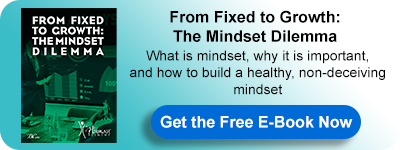Mindset: The Cornerstone of Self
“Mirror, mirror on the wall, who’s the fairest of them all?”
“You are, Your Majesty
A mindset is a set of beliefs that influence how you perceive the world and yourself. It has an impact on how you think, feels, and act in any scenario.1
Mindset stems from within. If we have positive thoughts about ourselves and our abilities, we will have a healthier perspective about ourselves. We are not implying here that we should deceive ourselves. What we are concerned about is seeing ourselves as humans. We have a set of talents that we need to acknowledge and make the most of. When we have a healthy mindset, our sense of self, achievements, talents, and capabilities stem from the inside. We do not wait for others to acknowledge us. We know we are good and more than enough.
Does this mean that we do not recognize our shortcomings, weaknesses, and mistakes?
Absolutely! A healthy mindset admits flaws and faults. Yet, we see them as they are: we made a mistake because we are human, it does not mean we are less. We have weaknesses because we are humans as well, and human beings have both strengths and weaknesses. We do not belittle our identity because of a mistake or a shortcoming. We do not stick identity labels to ourselves.
A healthy mindset does not wait for validation from the outside. We validate ourselves because we believe in who we are.
“Mirror, mirror on the wall, who’s the fairest of them all?”
And before the mirror replied, she pulled it off the wall, stirred her back, and walked away whispering to herself, “I am content with how I look today…healthy, happy, and satisfied.”
Mindset: One Brick at a Time2
“Can anybody be happy if they aren’t free?”
– Beauty and the Beast
We would all like to have a healthy mindset. But before we move into that, let’s first explore what the components of a mindset are:
・Thoughts
Conscious and subconscious thoughts coexist. We can momentarily control our conscious thoughts, but our subconscious ones eventually always challenge our conscious thoughts. Years of indoctrination from external variables have shaped our subconscious ideas. Our family and friends, schooling, the media, and religion are just a few of these influences.
・Perception
The way we process our thoughts to form our world is called perception. The classic example is the age-old metaphor of seeing the glass half-empty or half-full.
・Emotions
Emotions are a form of self-reflection on your perceptions. These decisions you make have the power to impact your body’s physiology. Anger, for example, can make you sweat, stress can make you sweat, and happiness or grief can make you cry.
・Values
What one considers to be important is defined by one’s values. Values, which lead to core values, also provide an order of precedence of what’s significant. These essential principles give a framework for weighing the pros and cons of competing values. Preparation, commitment, quality, loyalty, and integrity are all common fundamental principles. If one prioritized loyalty over honesty, for example, one may contemplate lying to benefit a buddy. Another example is that if one values preparation over-commitment, they may cancel or postpone an event if they believe they have adequately prepared.
・Behaviors
Behaviors are what people see of us. If we use the iceberg analogy, we would say that the tip of the iceberg represents our behaviors. Behavior is the culmination of values, emotions, perceptions, and thoughts. All the four previous components are expressed through our actions: thus, our behaviors.
1Very Well Mind, 29 April 2021, Kendra Cherry, What is a Mindset and Why it Matters? Accessed 14 Oct 2021, https://www.verywellmind.com/what-is-a-mindset-2795025
2Chris Mance, 13 June 2020, Christopher Mance II, The Five Elements that Define Your Mindset, Accessed 14 Oct 2021, https://chrismance.com/2020/06/13/the-5-elements-that-define-your-mindset/
For more about this topic, download our latest book " From Fixed To Growth: The Mindset Dilemma " for FREE:
